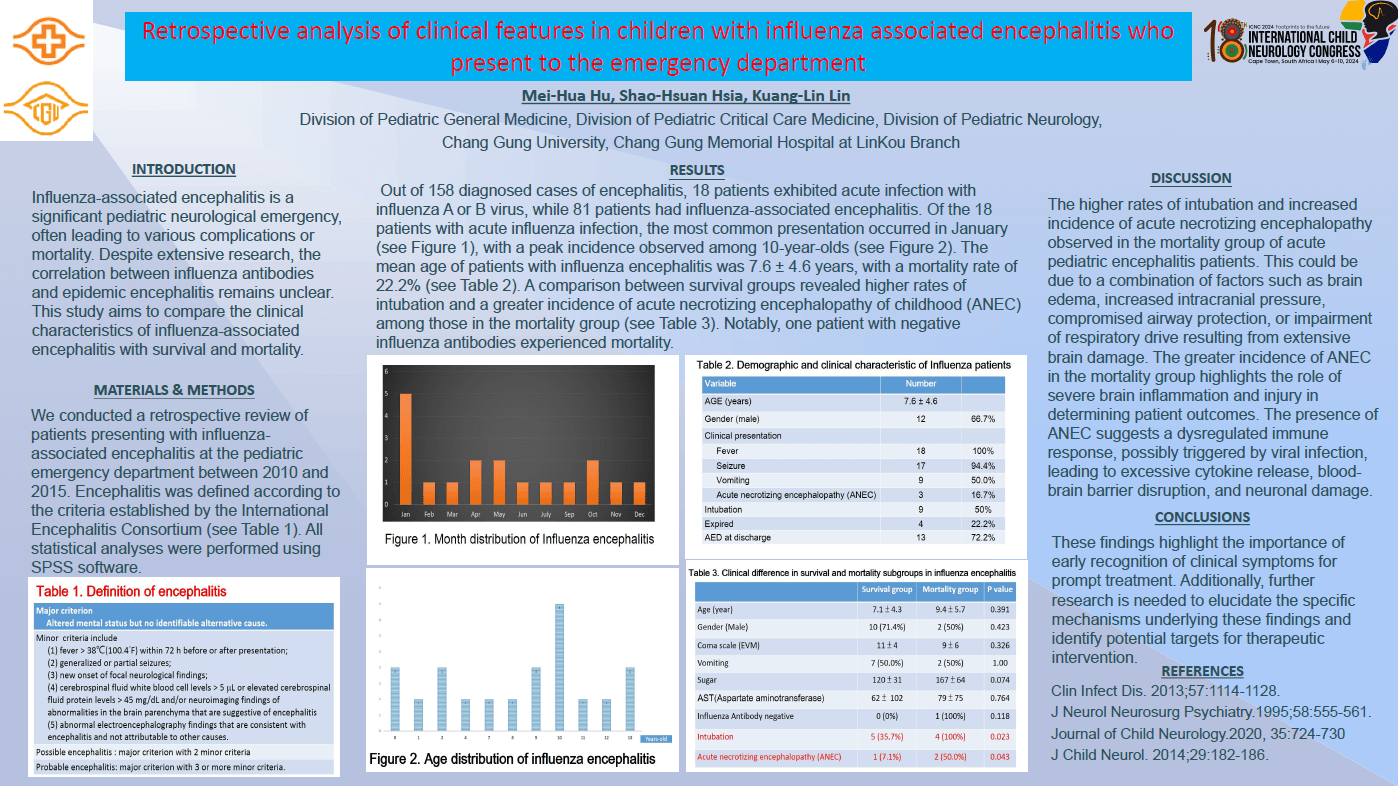Retrospective Analysis Of Influenza-Associated Encephalitis Who Presenting To A Pediatric Emergency Department
Introduction: Influenza-associated encephalitis is an important pediatric emergency neurological disease with various neurological complications or mortality. Despite intensive investigation, the relationship between influenza antibodies and epidemic encephalitis remains unclear. In this study, we compared the clinical characteristics of influenza-associated encephalitis with acute infection and those without acute infection. Methods: We retrospectively reviewed the clinical, laboratory, and outcome of influenza-associated encephalitis who presented to the pediatric emergency department. Results: Of 81 patients diagnosed with influenza-associated encephalitis, 6 (7.4%) patients had mortality. Comparisons with non-acute infection, acute influenza infection-associated encephalitis had a significant increase in mortality (odds ratio [OR]: 13, P=0.006), intubation (OR: 7.6, p=0.002), acute necrotizing encephalitis (OR: 8.86, p=0.024), and duration of intensive unit care (OR: 1.20, p=0.007). Conclusion: These results indicate that early recognition of clinical symptom signs prompts treatment. Further investigation into the molecular pathogenesis and epidemiology of this disease is necessary to development of effective strategies.
Mei Hua Hu
Chang Gung University/Chang Gung Memorial Hospital at LinKou
Taiwan
Shao-Hsuan Hsia
Chang Gung Memorial Hospital at LinKou
Taiwan
Kuang-Lin Lin
Chang Gung Memorial Hospital at LinKou
Taiwan

Mei Hua Hu
Chang Gung University/Chang Gung Memorial Hospital at LinKou
Taiwan